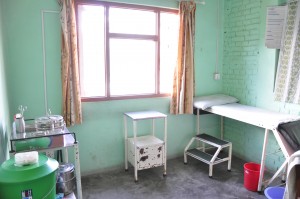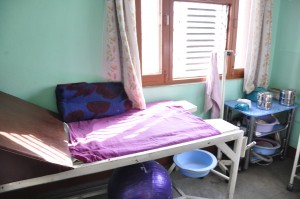Empowerment and Autonomy at Nepal
Task Shifting has done two wonders for Nepal.
First, it’s helped with increasing access for safe abortion: women living in rural areas, and in remote, hilly regions have access to Comprehensive Abortion Care (CAC) though the Manual Vacuum Aspiration method and through medical abortion. Trained midlevel providers perform both services up to 8 weeks of gestation, and also provide very impressive pre-abortion counseling, and post-abortion care. Overall, this has helped Nepal take a giant step towards reducing maternal mortality rates.

Secondly, task shifting has helped in giving the field of nursing a much-deserved boost. Trained nurses and midwives work alongside doctors in city-based obstetric facilities, and independently in more remote health care centers, like health posts and sub-health posts. In teaching hospitals, they act as CAC trainers, and train medical students and other nurse-midwives.
Nursing is now a very exciting profession in Nepal, according to Kiran Bajracharya, the President of the Midwifery Society of Nepal and an Associate Professor of Midwifery at the Maharajgunj Nursing Campus in Tribhuvan University. “Students are so confident, and so empowered these days,” she said. This new sense of empowerment was encouraging women in rural Nepal to come to city for a few years of education, and then return with new found knowledge. These young girls would not be allowed to live in the city, but with their new education, they lead an independent and empowered life in their villages.
Task Shifting also gives nurses a chance to run autonomous care facilities called birthing centers. An excellent example of such a center stands at the outskirts of Katmandu city. Ms. Laxmi Tamang who runs this center is a nurse trained in obstetric care, and is currently working on her Ph.D. thesis out of a university in Australia. She is also one of the nurses who pioneered the idea of a center that runs on government funds, and the nurses’ own money.

“We did not want donors involved,” she said. “We did not want them to tell us what to do, or how to provide service. So, we put in our own money and began one or two birthing centers.” Laxmi and her fellow-nurses were almost running at a loss when they began their grassroots venture. Currently the government of Nepal has stepped in to provide financial aid for centers that already exist, as well as for starting additional ones.
The birthing center Laxmi runs provides women with holistic obstetric care. In the mornings nurses run a small out-patient unit where they do routine ante-natal check ups. On the first floor of the center, they offer two services: normal delivery and CAC. A third room serves as a recovery ward. A 24-hour pharmacy provides women with family planning services. Trained obstetricians and CAC providers visit on two days to handle complicated cases.

In addition, the center uses its young nurses as scouts, and sends them to neighboring areas to look for women who are nearing term. These women are counseled and asked to come to the center for delivery. The Nepal Global Health Initiative Strategy published in 2010 showed that only about 81% of women have institutionalized births in Nepal. Laxmi hopes that these birthing centers will change that.
“We are trying to establish these centers in areas where people don’t have nearby hospitals. During our field visits we convince these women to come to the centers for delivery and abortion.”
Task Shifting on the whole has allowed Nepal to combat its high maternal mortality rates, and meet its MDG goals. Nepal has ways to go before these goals are met, but there is a lesson that every South Asian country can learn from Nepal’s history of task shifting. Not only have they managed to increase access, but they’ve empowered their young nurses, and given them the ability to provide services independently and efficiently.






